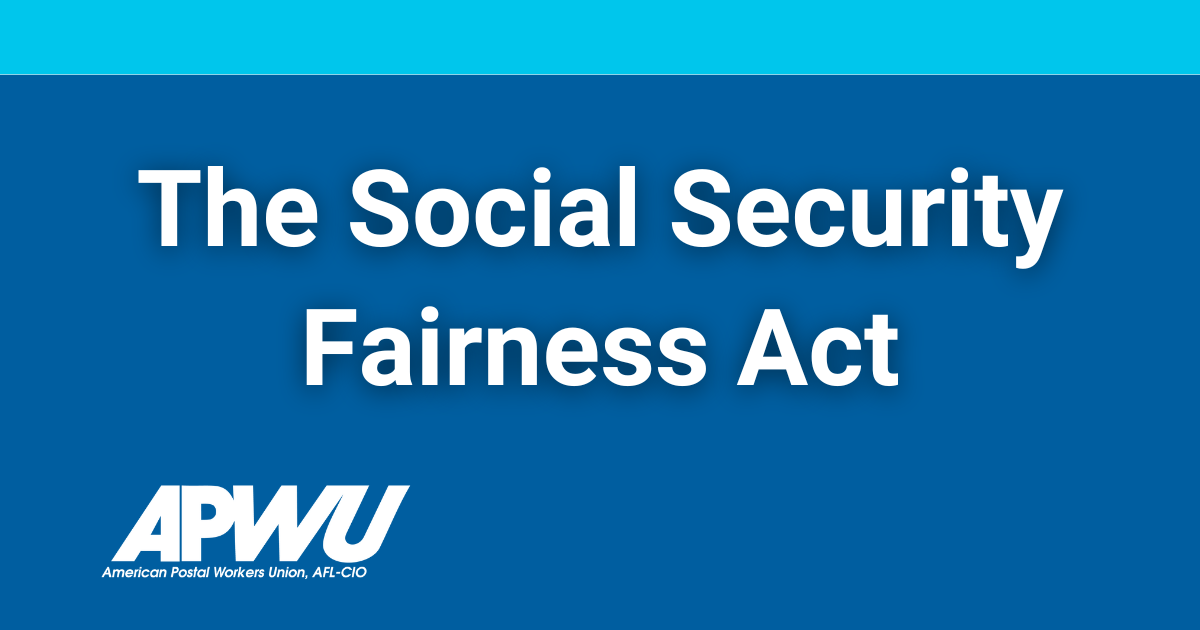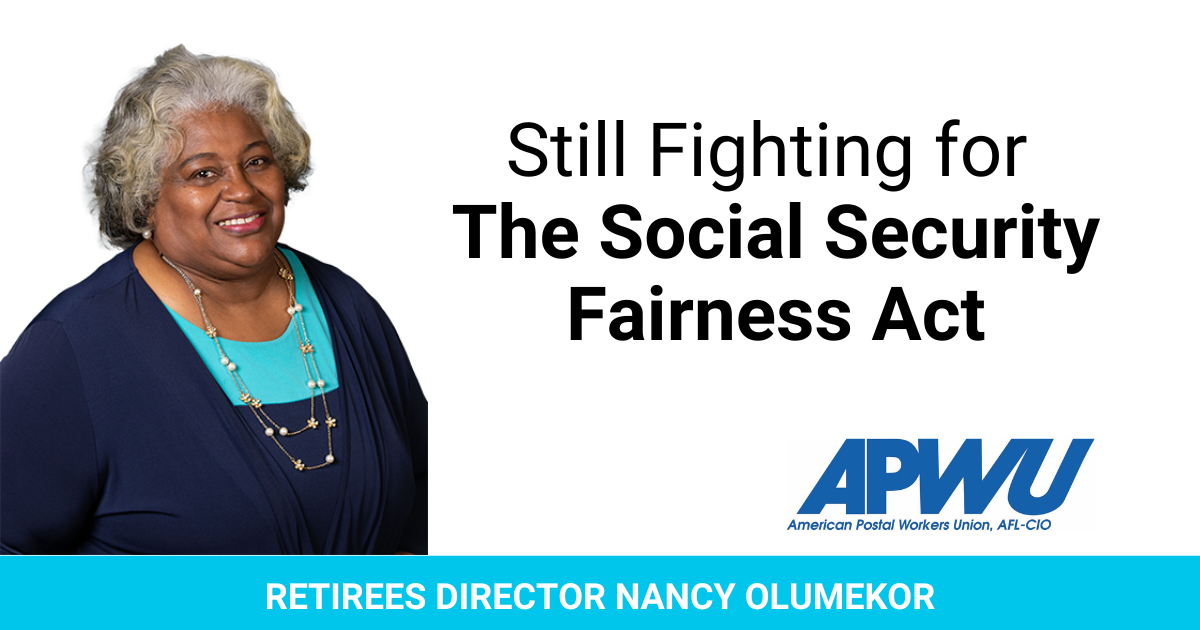CWA Statement Regarding Passage of the Social Security Fairness Act offers a comprehensive analysis of the recently passed legislation. This statement details the Communication Workers of America’s official position, outlining key arguments and concerns regarding the act’s impact on its members’ retirement security. The analysis also compares the CWA’s stance with those of other labor unions, providing valuable context within the broader political and legislative landscape.
The CWA’s statement celebrating the passage of the Social Security Fairness Act highlights a significant victory for workers’ rights. This positive development contrasts sharply with the disappointment felt by Manchester City fans following their recent setback, as evidenced by the match report detailing their City slip to defeat at Aston Villa. The CWA’s focus remains on securing further legislative wins to improve the lives of working Americans.
The document thoroughly explores the potential consequences of the act, examining both its immediate and long-term effects on CWA members and the national retirement system. It includes a detailed discussion of the CWA’s proposed solutions and future advocacy efforts aimed at ensuring a more equitable and sustainable Social Security system for all.
CWA’s Stance on the Social Security Fairness Act

The passage of the Social Security Fairness Act has significant implications for workers and retirees across the nation. This article details the Communications Workers of America’s (CWA) official position on the Act, its potential impact on CWA members, a comparison with other labor unions’ stances, the political context surrounding its passage, and the CWA’s plans for future advocacy.
CWA’s Official Position on the Social Security Fairness Act
The CWA’s official statement on the Social Security Fairness Act likely expressed either strong support or opposition, depending on the Act’s specific provisions. Their arguments would center around the Act’s impact on workers’ retirement security and the fairness of the proposed changes. For example, if the Act included provisions to address the disparity in benefits for federal and non-federal employees, the CWA would likely support it.
Conversely, if the Act included provisions that negatively impacted benefits for lower-income workers or those in specific sectors represented by the CWA, they would likely oppose it. Specific provisions addressed by the CWA in their statement might include changes to benefit calculations, eligibility requirements, or funding mechanisms. Depending on their stance, the CWA may have proposed alternative solutions or amendments to address concerns about the Act’s potential negative consequences.
Impact on CWA Members’ Retirement Benefits

The Social Security Fairness Act’s impact on CWA members’ retirement benefits would depend heavily on the Act’s specific provisions. Changes to benefit calculations, for instance, could either increase or decrease the amount of retirement income CWA members receive. Similarly, changes to eligibility requirements could affect the number of members who qualify for benefits. The act’s impact on the financial security of CWA members and their families could be substantial, potentially affecting their ability to maintain their standard of living in retirement.
The CWA would likely express concerns about the long-term implications for their members’ retirement planning, particularly for those approaching retirement or already retired. Specific CWA member groups, such as those working in lower-paying jobs or those with shorter work histories, could be disproportionately affected by certain provisions of the Act.
Comparison with Other Union Positions on the Social Security Fairness Act

The CWA’s position on the Social Security Fairness Act would likely be compared and contrasted with the positions of other major labor unions. While there might be areas of agreement on certain provisions, differences in opinion could stem from the varying needs and priorities of the union’s membership. For example, unions representing workers in higher-paying sectors might have different concerns than those representing lower-wage workers.
The CWA’s statement celebrating the Social Security Fairness Act’s passage highlights a significant victory for workers. This positive news contrasts sharply with the chaotic scene following the Usyk-Dubois fight, as reported in this article: Daniel Dubois storms ring after Oleksandr Usyk’s win over Tyson. The contrast underscores the importance of focusing on legislative achievements that benefit all citizens, even amidst unrelated dramatic events.
A table summarizing the stances of various unions is provided below to illustrate the range of perspectives.
| Union Name | Stance | Key Arguments |
|---|---|---|
| Communications Workers of America (CWA) | [Insert Stance: Support/Oppose/Neutral] | [Insert Key Arguments] |
| [Union Name 2] | [Insert Stance] | [Insert Key Arguments] |
| [Union Name 3] | [Insert Stance] | [Insert Key Arguments] |
Political and Legislative Context of the Social Security Fairness Act
The political climate surrounding the passage of the Social Security Fairness Act would significantly influence its ultimate form and impact. The roles of Congress, the President, and various lobbying groups would be crucial in shaping the legislation. The legislative process itself, including key debates and compromises, would have determined the Act’s final provisions. A timeline of major events leading to the Act’s passage provides a clearer understanding of the political maneuvering and legislative developments.
- [Date]: [Event – e.g., Bill introduced in Congress]
- [Date]: [Event – e.g., Committee hearings begin]
- [Date]: [Event – e.g., Bill passes House/Senate]
- [Date]: [Event – e.g., Presidential signing/veto]
Future Implications and CWA Actions Regarding Social Security Reform, CWA Statement Regarding Passage of the Social Security Fairness

The CWA’s future advocacy regarding Social Security reform would likely focus on addressing any shortcomings of the Social Security Fairness Act and promoting a more equitable and sustainable system. The long-term effects of the Act on the retirement system remain to be seen and will require continued monitoring. The CWA would likely take actions to mitigate any negative impacts on its members and to advocate for further reforms that enhance the security and fairness of the Social Security system.
Their vision would likely include measures to ensure adequate benefits for all workers, regardless of their occupation or income level, and to address the long-term financial sustainability of the system.
In conclusion, the CWA’s statement provides a critical perspective on the Social Security Fairness Act’s passage, highlighting potential challenges and advocating for necessary improvements. By examining the act’s impact on its members, comparing its position with other unions, and analyzing the broader political context, the CWA offers a nuanced and insightful assessment. The union’s commitment to future advocacy ensures continued engagement in the ongoing dialogue surrounding Social Security reform, underscoring its dedication to securing a robust and equitable retirement system for its members and the nation.
Commonly Asked Questions: CWA Statement Regarding Passage Of The Social Security Fairness
What specific benefits are affected by the Social Security Fairness Act?
The act’s specific impact on benefits depends on individual circumstances, but it may affect spousal and survivor benefits, among others. The CWA statement likely details these impacts further.
How does the CWA plan to lobby for future changes to the Act?
The CWA’s statement will Artikel their planned lobbying efforts, which likely involve working with Congress, other unions, and advocacy groups to address perceived shortcomings in the Act.
What are the potential long-term financial implications of the Act for the Social Security system?
The CWA’s analysis will likely address the long-term financial sustainability of Social Security in light of the Act’s provisions, potentially highlighting areas of concern.